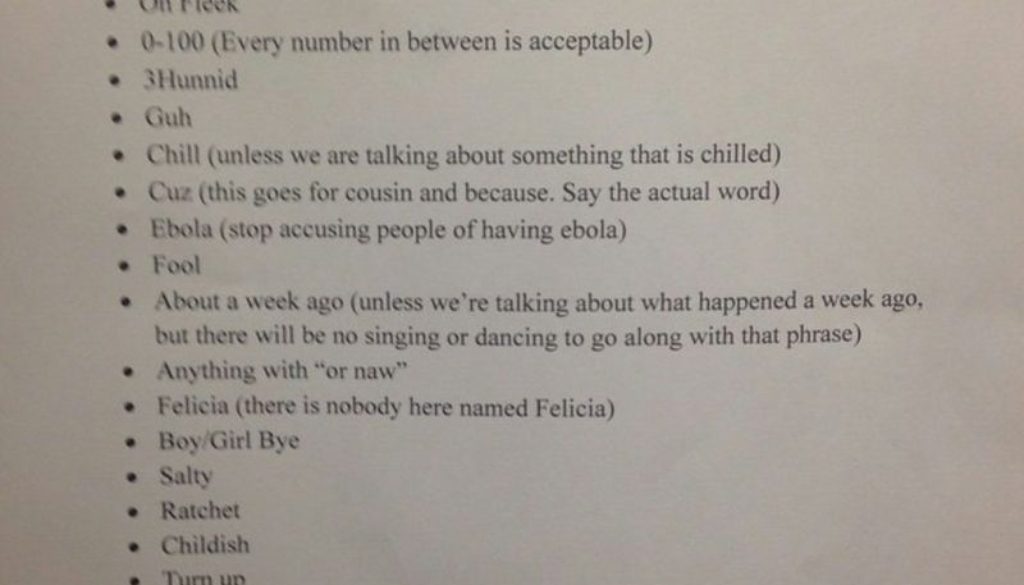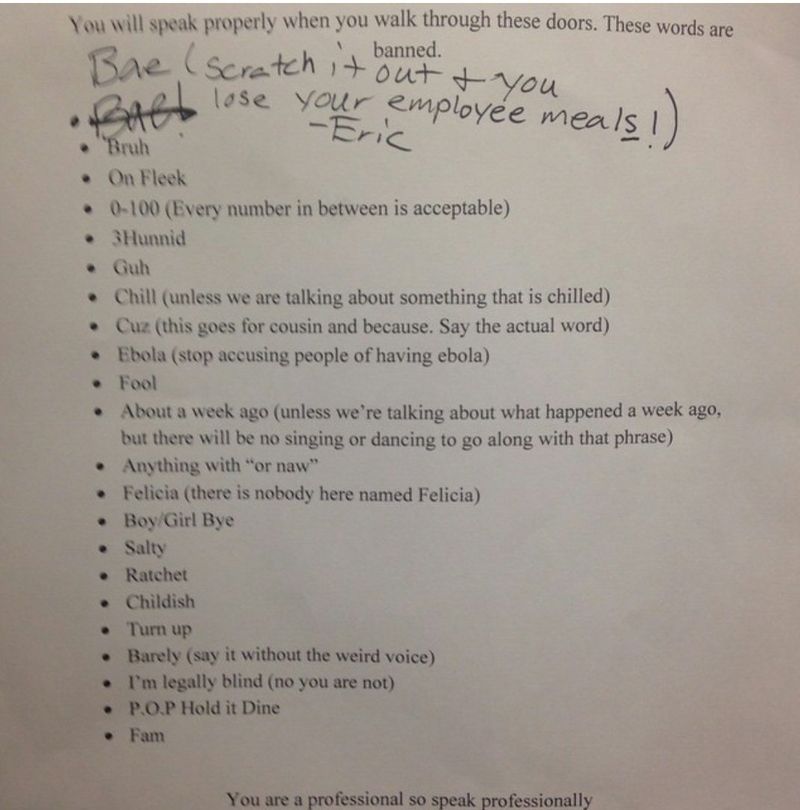Employee Engagement By Force or by Freedom?
Eric, a Chick-fil-A manager, obviously had had it. His employees were using slang and then saying, “My pleasure.” (Which, I find a bit ironic because “My pleasure” is slang itself because it is an incomplete sentence. It should be “It’s my pleasure.” But we can overlook that.)
To cut the slang out of the restaurant, he posted a list of words the employees were no longer to say.
Whether this is a bona fide attempt at controlling employee slang or a just a hoax has yet to be determined.
Either way, what it has given us is a great topic of debate.
Resolved: Employers have the right to limit the way employees speak to customers.
Do you take the affirmative or negative position on this one?
On one hand, they work for the Chick-fil-A and are asked to do many things within guidelines or policy which are meant to enhance the success of the restaurant. On the other hand, is it tyrannical to force them to speak a specific way with specific words?
Cold Hard Reality
When we work for someone else, we will be asked to modify our behavior to match the culture of the company. From saying, “My pleasure,” to adding a disclaimer at the end of our emails, to meeting etiquette… and the list goes on.
Unless illegal we have two choices: a) conform or b) quit.
They pay the bills and pay the employee. If someone doesn’t like their culture they need to find employment somewhere else.
We have seen companies or employees in companies act immorally – from borderline sexual harassment to encouraging to fudge the books everso slightly. While these actions may not be illegal, they may be immoral.
Then again, maybe the company asks employees to do something they don’t want to do. Like not use slang words. The employer is completely within their right to ask this of their employees and to discipline if the employees don’t adhere to the policy.
Reality vs. Effectiveness
But the real question is different: “Is the action that the Chick-fil-A manager took the most effective way to get to his goal?” His goal on one level is to stop slang talk. On a deeper level it is to increase employee effectiveness with the customers. Go a level deeper and it is to increase employee engagement. Even deeper is a level to increase profits for the stakeholders.
The answer the above question is no, it is not very effective. Having seen this type of action taken by many managers, what Eric has effectively done is two things: 1) transfer the effect of the problem from slang to an unknown action by the employees that will soon rear its ugly head. If they can’t do that, they will act out in some other way. 2) He has only multiplied the negative effect. Now the employees will be even more upset and act out with increased animosity in another way.
Why? Because the root of the problem has not been resolved. It is easy to gloss over the real issue and put out the flame of the problem-of-the-day.
The First Level Lesson
Take care of the root of the problem and all the ancillary issues go away.
The Second Lesson
If the employees were engaged, if they had skin in the game, if they not only “reported” to one manager but instead to each other, if they understood the consequences of speaking that way to customers, if they cared about the profitability of the restaurant, if they were working as a team not for a paycheck but to create something of meaning, slang would not be a problem.
In the Future of Work, we create an environment to transcend these type of issues. Not that they won’t ever exist (because we are working with humans), but when they do happen, the purpose of the company and the team itself right the wrong instead of coming down like a hammer.
When we create an enabling environment with freedom, the issues we are used to dealing with are righted by the team and employee engagement goes through the roof.


